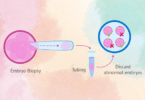Have you ever heard of fatty liver disease? It’s becoming a common concern, yet many people don’t know much about it. Whether you’re just curious about your health or concerned about a recent diagnosis, understanding fatty liver disease is essential. This blog will provide details regarding fatty liver.
Understanding Fatty Liver Disease
The liver, located on the upper-right of the abdomen, is the largest organ responsible for removing toxins and processing food nutrients. Fatal liver disease, called steatosis, is when excess fat builds up in the liver. It’s normal to have some fat in your liver, but when it makes up more than 5-10% of the liver’s weight, it becomes a problem. This condition can be categorised as:
- Non-Alcoholic Fatty Liver Disease (NAFLD): This type occurs in people who drink little or no alcohol and is associated with issues like obesity, insulin resistance, and metabolic syndrome.
- Alcoholic Fatty Liver Disease (AFLD): This type of fatty liver disease is caused by excessive consumption of alcohol. It damages the liver and leads to fat accumulation.
Causes of Fatty Liver Disease
Numerous factors contribute to the development of fatty liver problems. It includes:
- Excess body fat, especially abdominal fat, can lead to fat buildup in the liver.
- Conditions like type 2 diabetes and metabolic syndrome, which cause insulin resistance, can increase fat accumulation in the liver.
- Chronic alcohol consumption can damage liver cells and lead to the disease of fatty liver.
- Diets high in sugar, refined carbohydrates, and saturated fats can contribute to fatty liver issues.
- Family history and genetics are associated with an increasing risk of developing fatty liver problems.
Symptoms of Fatty Liver Disease
At the early stage, there are generally no symptoms, thus making it difficult to detect without medical testing. However, the following symptoms may appear:
- Fatigue
- Abdominal Discomfort
- Sudden Weight Loss
- General Weakness and Malaise
- Jaundice
Risk Factors for Fatty Liver Disease
Fatty liver disease presents various risks due to its association with lifestyle and metabolic factors. The accumulation of fat in liver cells, often linked to obesity, diabetes, and excessive alcohol consumption, can lead to inflammation and liver damage. This inflammation can progress to non-alcoholic steatohepatitis (NASH), characterised by liver cell injury and fibrosis. If left untreated, NASH may evolve into cirrhosis, where scar tissue replaces healthy liver tissue, impairing liver function and potentially leading to liver failure.
Additionally, individuals with fatty liver disease are at an increased risk of cardiovascular diseases, which include hypertension, hyperlipidemia, and insulin resistance. The silent and often asymptomatic progression of this disease underscores the importance of early detection and lifestyle modifications. It includes weight loss, a healthy diet, regular exercise, and moderation of alcohol intake to mitigate its risks and prevent severe complications.
Role of Health Insurance in Managing Fatty Liver Disease
Comprehensive health insurance can alleviate the financial burden of fatty liver issues. Here are the details on how the best health insurance policy can be beneficial:
- Coverage for Diagnostic Tests: Health insurance can cover the costs of essential diagnostic which are crucial for the early detection and monitoring of fatty liver.
- Access to Specialist Consultations: Insurance plans often provide access to specialists who can offer expert advice and treatment plans.
- Hospitalisation Coverage: If hospitalisation is required, insurance can cover the costs, including room charges, doctor’s fees, and medication.
- Preventive Health Check-ups: Many insurance plans offer coverage for preventive health check-ups. These check-ups help detect fatty liver problems and other related conditions early.
- Chronic Disease Management: Insurance plans can include coverage for chronic disease management programmes, which provide ongoing support and treatment for conditions like fatty liver.
Niva Bupa: Comprehensive Health Insurance for Fatty Liver Disease
The disease of fatty liver is a growing health concern that requires timely detection and effective management. Understanding the causes, symptoms, and risks is essential for early intervention. Additionally, having comprehensive health insurance, such as the plans offered by Niva Bupa, can provide significant support in managing this condition.
Niva Bupa, one of India’s leading health insurance providers, offers a range of health insurance plans that cater to the needs of individuals with fatty liver disease. These plans include coverage for a wide array of diagnostic tests, which are crucial for the early detection and monitoring of diseases.
The policy lets you access a network of specialist consultations, ensuring expert advice and personalised treatment plans. In cases of hospitalisation, Niva Bupa’s plans cover a range of expenses, including room charges, doctor’s fees, and medications, often through cashless services at partner hospitals. This helps reduce financial strain during emergencies so you can live a peaceful life.
Furthermore, with no-claim bonuses, lifetime renewability, and round-the-clock customer support, Niva Bupa’s best health insurance policy is tailored to provide robust and flexible coverage. This makes it an excellent choice for managing fatty liver issues effectively and ensuring peace of mind.
Thus, investing in the best health insurance policy helps safeguard your health and well-being, especially when dealing with conditions like fatty liver.






